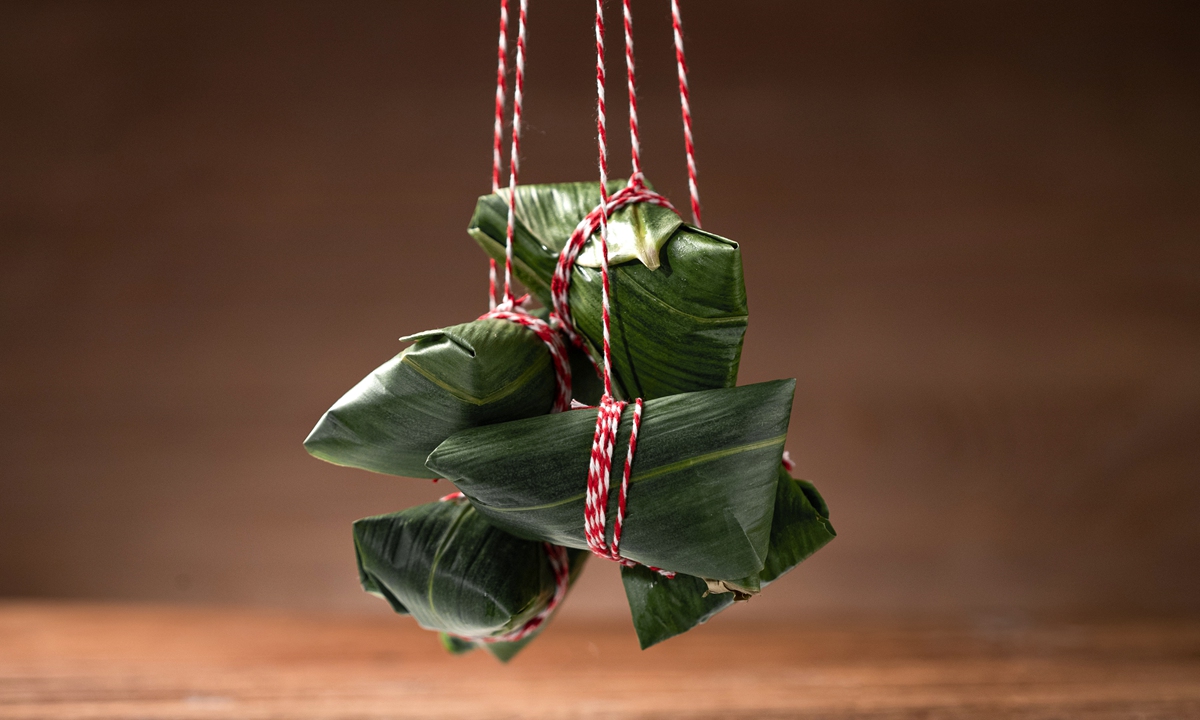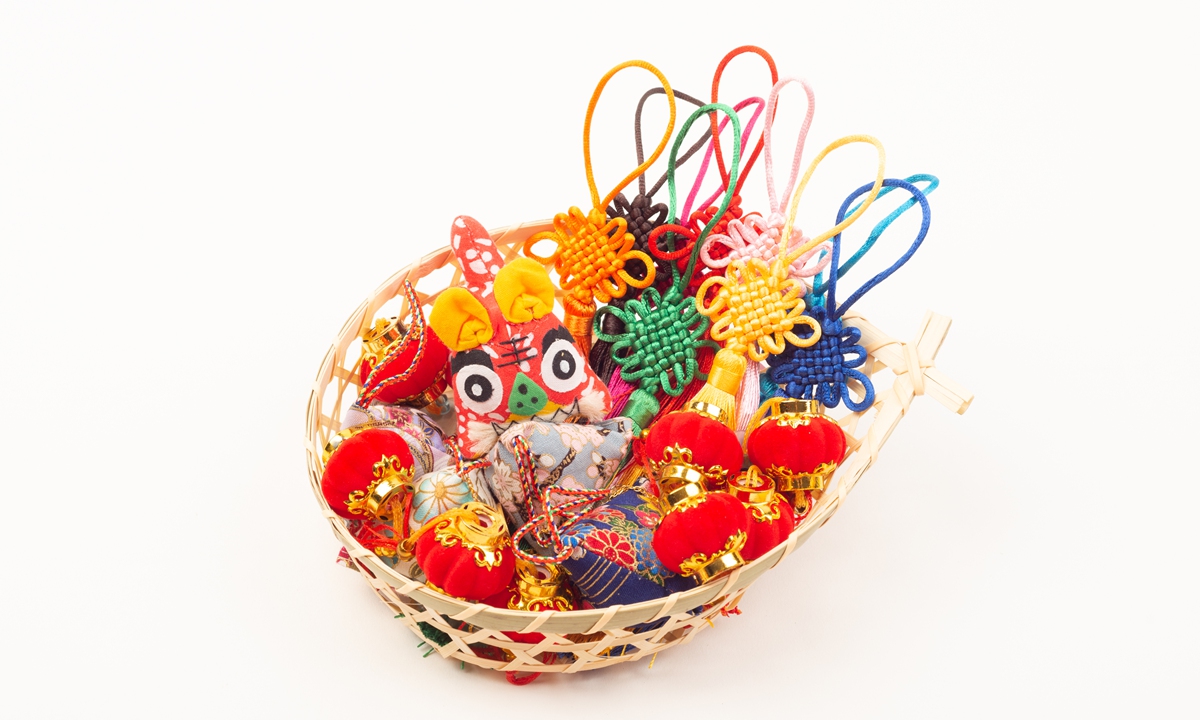ARTS / CULTURE & LEISURE
China’s Dragon Boat Festival brings snacks, accessories as well as races
Holiday trio

Photos: VCG

Photos: VCG

Photos: VCG
Editor's Note:The Dragon Boat Festival, also known as Double Fifth Festival because it falls on the fifth day of the fifth lunar month of the Chinese calendar, will arrive on Friday. It is traditionally tied to prayers for eliminating illnesses and disasters, so the 2022 festival is especially anticipated amid the ongoing COVID-19 pandemic.
Although its English name just mentions the dragon boat, the festival's diverse customs also include eating traditional snacks and making pleasant-smelling herb sachets, all of which are intangible cultural heritage items with thousands of years of history. The influence of the festival and its customs has expanded to different countries such as the US and the UK, showing the strong vitality of Chinese culture.
If you walked into a supermarket in China recently, you will most likely see large gift boxes filled with little pyramid-shaped snacks wrapped in bamboo leaves. These are zongzi, a traditional food made from glutinous rice stuffed with meat or other fillings during the Dragon Boat Festival.
Besides this tasty snack, the day is also celebrated with dragon boat races and the making of an accessory known as a herb sachet. Each of them has been listed as intangible cultural heritage of China.
The traditional customs of the festival are rooted in the culture of the Chinese people. For instance, the making and eating of zongzi was originally used to commemorate the patriotic poet Qu Yuan from the Warring States period (475BC-221BC), reflecting the fact that love of one's country has been an inseparable part of the sentiments of Chinese people since ancient times.
Traditions with strong vitality
"Zongzi, made by steaming glutinous rice wrapped in bamboo leaves, is a traditional Chinese snack dated back to the Jin Dynasty (265-420). It is wrapped up in the Chinese concepts of patriotism and loyalty due to its strong link to the folk story about Qu Yuan. It is now a cultural symbol we celebrate every year during the Dragon Boat Festival. A family who shares this food also shares its symbolic value. This is Chinese culture that is inherited at every family's table," Jiang Yufang, a traditional Chinese culture expert, told the Global Times.
Qu Yuan was a famous government official of the kingdom of Chu who was later exiled after his king believed several malicious rumors about him. During his exile, Qu wrote a great deal of poetry. He eventually committed suicide by drowning himself in the Miluo River when the Chu Kingdom was occupied by the State of Qin.
It is said that the local people, who admired him, raced out in their boats to save him, or at least retrieve his body, which is believed to be the origin of the dragon boat race. When his body could not be found, they dropped balls of sticky rice into the river so that the fish would eat them instead of Qu's body. This is traditionally held to be the origin of zongzi as the food during the festival.
The skill of making zongzi in East China's Zhejiang Province was listed as one of China's national intangible cultural heritage items in 2011.
In the early years of the Republic of China era (1912-49), Zhang Jinquan began to sell homemade zongzi on the streets in Jiaxing, Zhejiang Province.
There are dozens of types of zongzi with common fillings being eggs, pork or nuts.
After eating zongzi, Chinese families, especially those living in the south and near water, will usually go to watch dragon boat races.
Man power and teamwork
In Tongren, Southwest China's Guizhou Province, where multiple ethnic groups live together, dragon boat racing has a strong connection with local water culture. It became a national intangible cultural heritage in 2011.
When the weather warms up in April or May, local villagers will oil up the dragon boats that have been put in storage for a year and repaint the dragon patterns on the outside. Once done, they will launch the boat into the local river or lake and start practicing for the festival.
"Dragon boat racing symbolizes 'man power' and 'teamwork.' This is why you may see similar types of boat racing in Western countries such as the UK because the two values are shared by human beings in general," Jiang explained.
Looking out among the audiences at the races, some eagle-eyed viewers may notice some people wearing herb sachets.
Li Cuilin, an inheritor of this heritage, said that the herbs in the sachets she makes are carefully picked according to a secret recipe passed down by her family. It is made up of 15 Chinese medicinal herbs such as borneol and mint. The satchels smell fresh and pleasant; and also, according to traditional Chinese medicine, clear away heat and detoxify the body as well as repel mosquitoes and other insects. "Herb sachets are an embodiment of Chinese herbal medicine culture. Though ancient Chinese believed they dispelled evil spirits, the herbs inside do actually benefit one's health," Jiang said.
Chen Qiuning, a Chinese folk culture expert in Wuhan, noted that the herb sachet tradition can merge well with Western culture because the herbal medicine culture is also shared by Westerners. Chinese herb sachets are also artistically made of silk and attractive beads, demonstrating Chinese people's ingenuity in weaving art into people's everyday lives.
